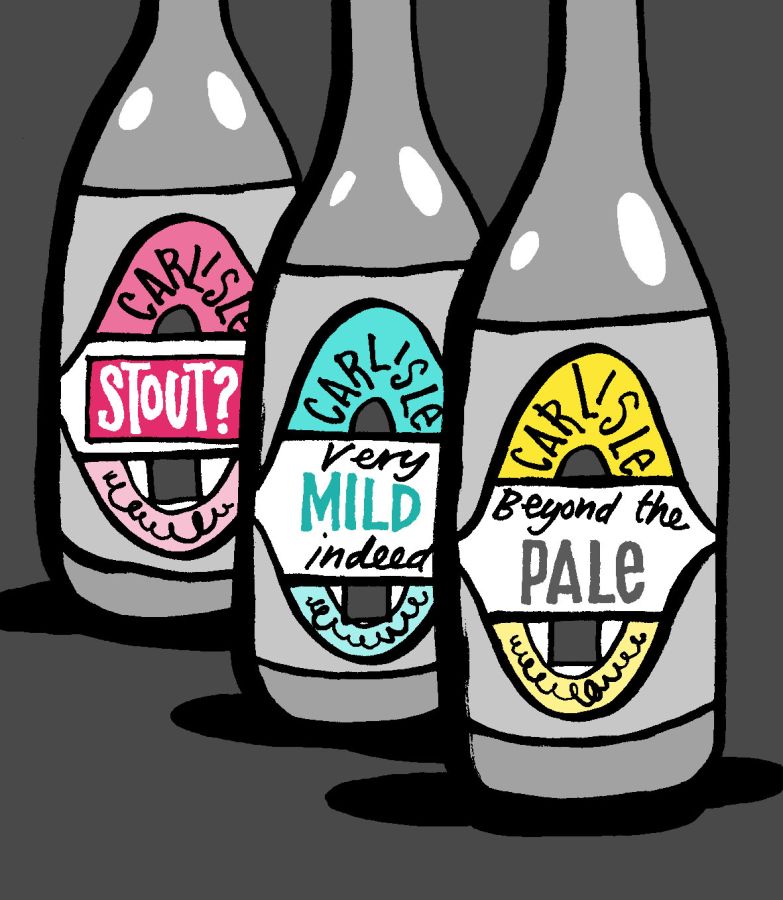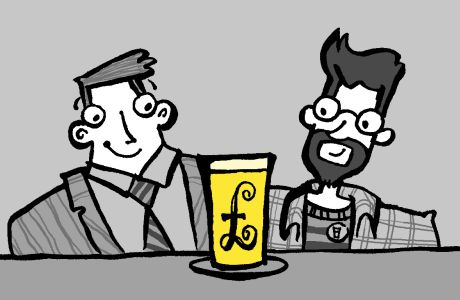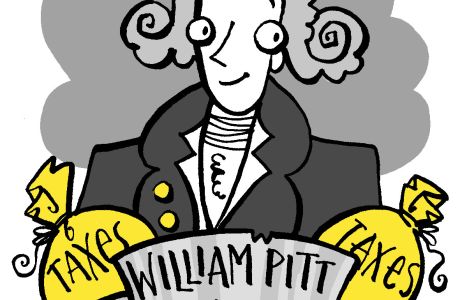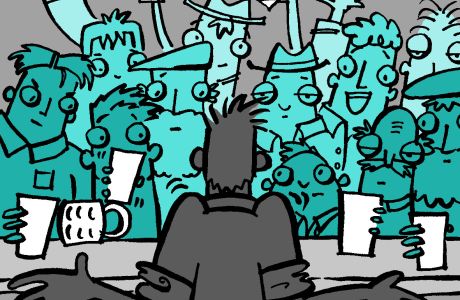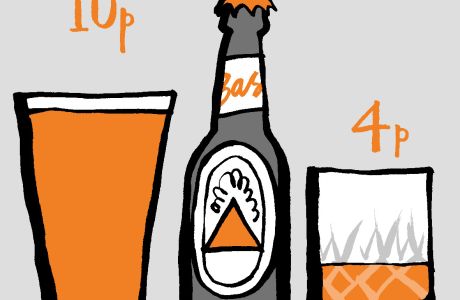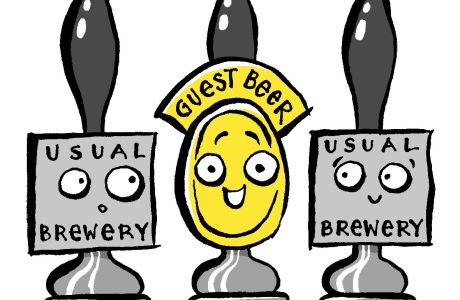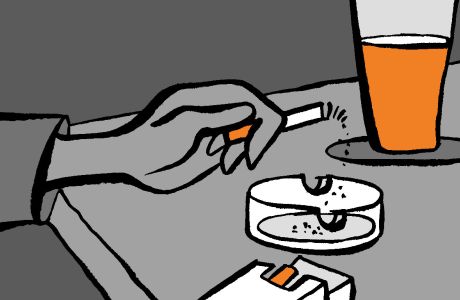Government & Hospitality – Government Ale
Series: Regulatory HistorySteve Dunkley brings you the third part of this Regulatory History series, with this article on Government Ale. He takes you through about the how the grain shortages properly impacted the production of beer during WW1, and what the Government attempted to counteract out this.
Illustrations by Christine Jopling: https://www.christinejopling.com
Things you will learn

- Grain Shortage
- Running out of beer
- Expensive Pints
- Drinkers Prevail
-
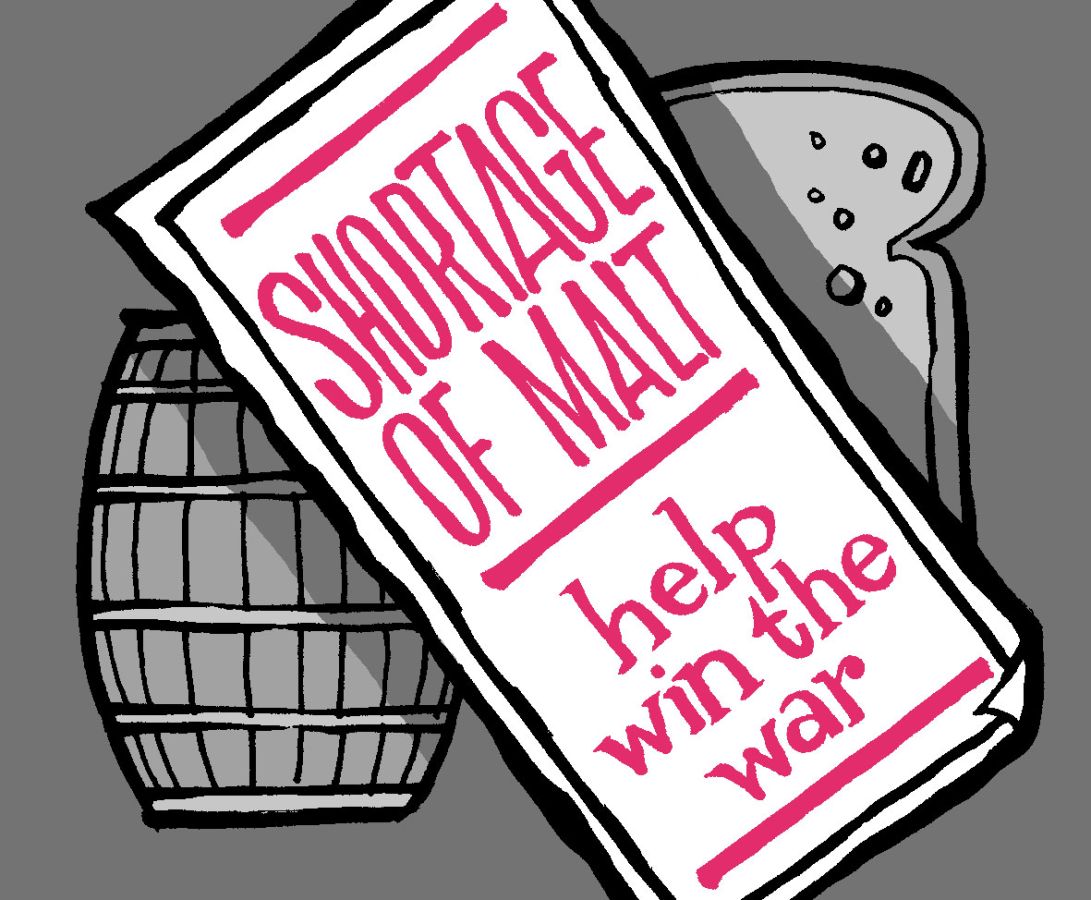
Grain Shortage
February 1917 was a dark day for the brewing industry in England as the government banned the malting of barley.
To be fair, there wasn’t enough grain to make bread for everyone to eat as the German u-boats were playing havoc with shipping in the Atlantic and the much needed supplies of food weren’t getting into port. The country’s reliance on food grown elsewhere isn’t anything new, and without those imports Britains were facing some serious shortages.
Spring barley is normally sown from mid-March and harvest starts towards the end of August, depending on the weather. So there were already stocks of malted barley around but that was it, brewers couldn’t malt any more and were limited to what was already processed. Which wasn’t enough, even with production volumes down as a large proportion of the drinkers were away at war.
-
Running out of beer
By April 1917 the government decided that it looked like Britain would run out of beer. Brewers were ordered to produce no more than one third of their previous year’s alcohol production. They could produce as much beer as they wanted, but the amount of alcohol was limited, a move welcomed and applauded by the temperance societies at the time, as they saw that it would reduce the amount of drinking committed by the working man. This was a bit short sighted though as it may have meant that the breweries wouldn’t run out of malted barley, but the reduced production did mean that the country would run out of beer. There was only so weak that a beer could be made before it became unpalatable.
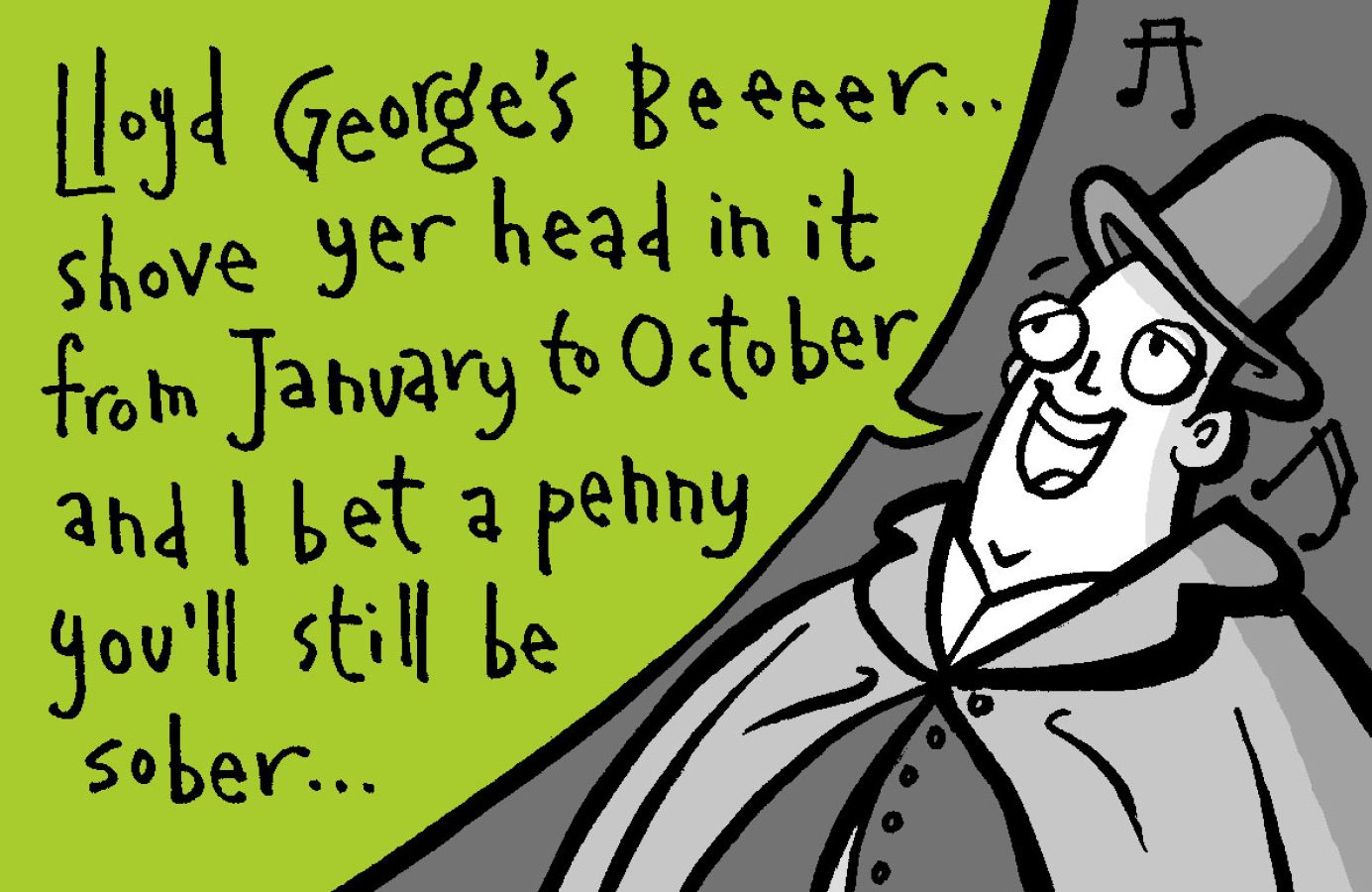
-
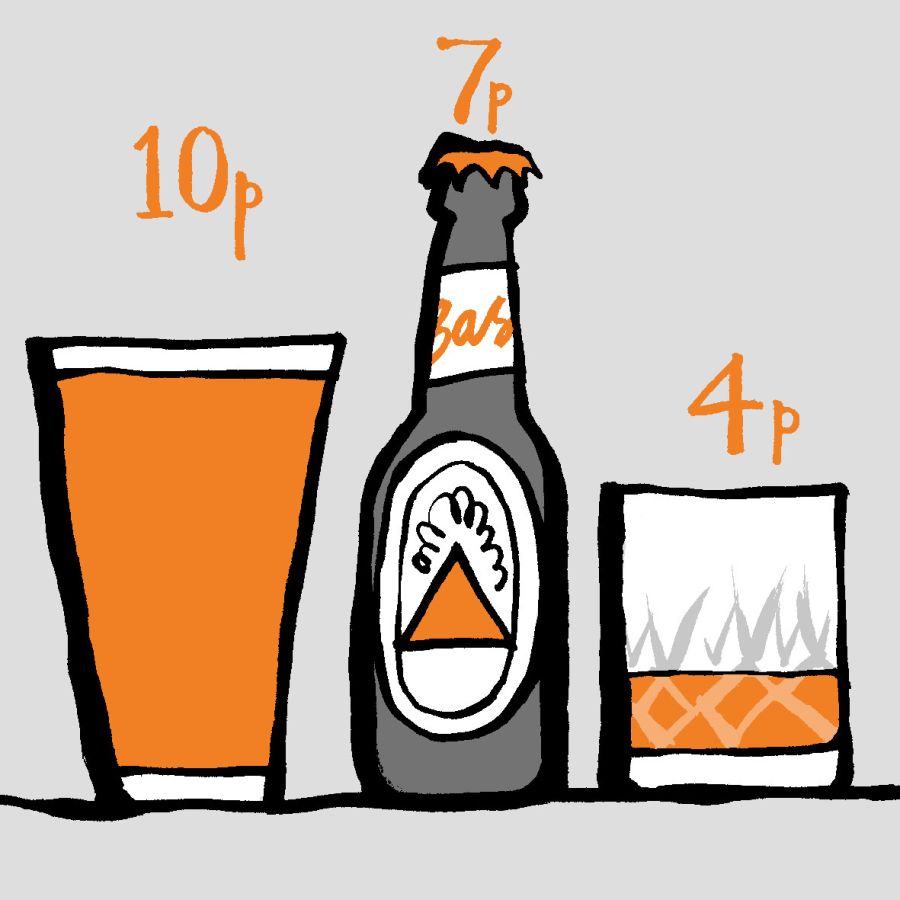
Expensive Pints
This in turn drove the price up by quite a lot. An example given in the Weekly Dispatch stated that a bottle of Bass was now costing 7 pence, but a whiskey only cost 4 pence. With the much larger stores of whiskey ageing and maturing in warehouses, the scarcity of malted barley wasn’t affecting the price of that yet.
In the pubs a pint of bitter had gone up to 10 pence and bars throughout the country were seeing people replacing their “morning pint” with a double Scotch and saving 2 pence. With people switching to whisky, beer supply looked to be saved but it wasn’t the outcome that everyone was hoping for.
To counter the increasing drinking of spirits, and the perceived drunkenness that entailed, in July 1917 the government ordered brewers to produce at least half of their beer with a starting gravity of below 1.030, which would give a beer between 2.6% and 3.0%, this meant that morning pints were back on the menu, as well as the stronger beers that drinkers liked in the evenings. Just a lot fewer of them.
-
Drinkers Prevail
All wasn’t hunky dory though, a 9 September article in the Weekly Examiner highlighted the scarcity of this weaker Government Ale, drawing the conclusions that pubs – and breweries – were using it to mix with the stronger beers and gain much higher profits. The extent of this problem was such that the government had to step in to make sure that the Government Ale that was being brewed and sold to pubs was then available to the drinker as Government Ale.
In 1918 things hadn’t improved and the Government ordered that all beer produced by a brewery had to have an average gravity of 1.030. With an average strength of 2.6% to 3% coming out of a brewery most beer would have been weak and a shadow of its former self. Ron Pattinson covers this well in his blog entry on Courage Stout (https://barclayperkins.blogspot.com/2023/07/lwts-brew-1918-courage-stout.html ). At the start of the year the Stout had an original gravity of 1.064 but when the law changed in April 1918 the beer became 1.036. That’s a change from around 7% abv to 3.4%. And to be able to even manage that they had to offset it with large production volumes of their X Mild at 1.022 OG, about 1.6%.
Whichever method the government brought in to try and reduce the alcohol content of beer, or to stretch out the limited supplies of grain, the brewers always managed to find a way around it to supply the drinkers with what they wanted, and if the brewers couldn’t; the publicans did.
